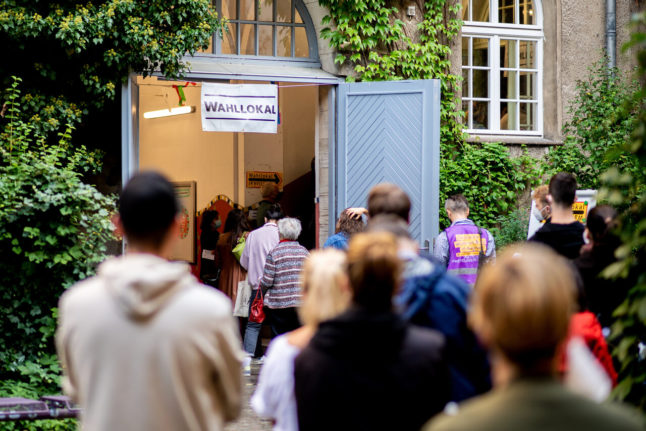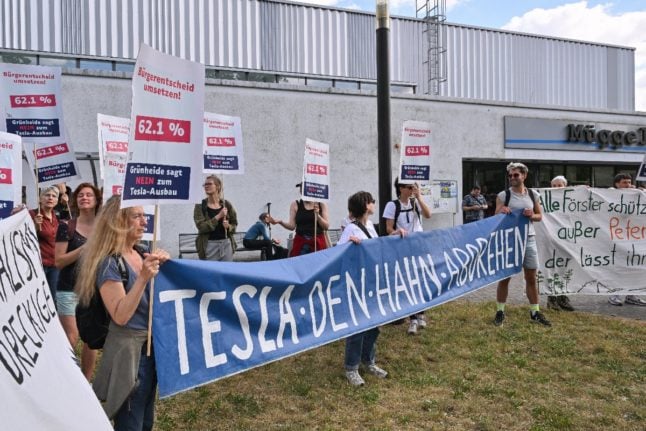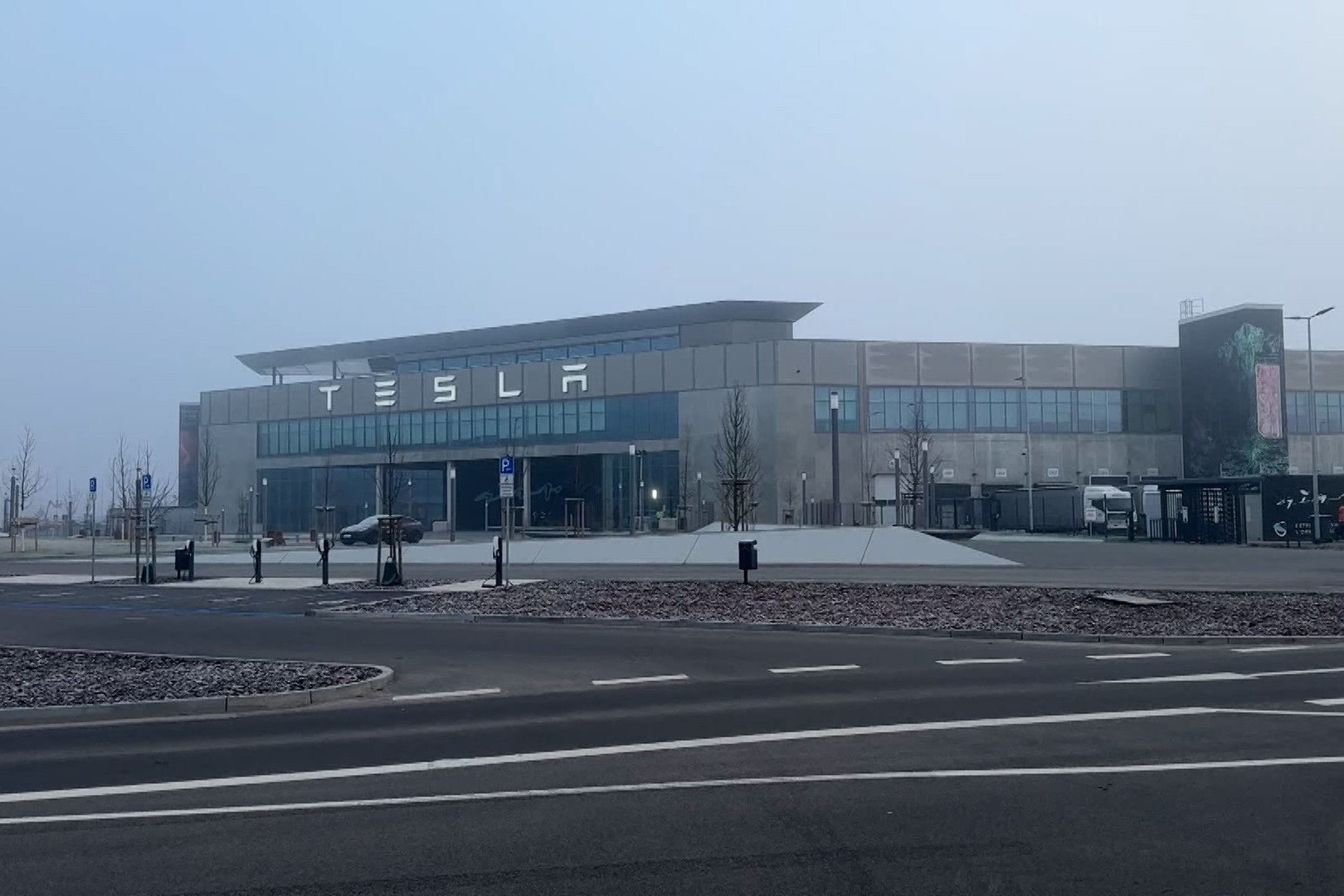A dispute has been ongoing between the opposition Christian Democrats (CDU) and Germany’s ‘traffic-light’ coalition government, made up of the Social Democrats (SPD), Greens and Free Democrats (FDP), on how many districts in Berlin will have to take part in a repeat vote for the federal elections of 2021.
And on Tuesday, Germany’s Constitutional Court ruled that 455 districts in the German capital will have to invite voters to the polls again after chaos on election day more than two years ago.
This is 31 districts more than agreed upon by the Bundestag last year, but far fewer than the 1,200 that the CDU argued for.
The original vote, which took place in September 2021, saw widespread problems, mostly caused by the Berlin marathon taking place on the same day.
Some voters were queuing for hours, and some polling stations ran out of ballot papers.
With this ruling the Constitutional Court said it wanted to set standards for the future by clarifying how to deal with missing ballot papers or voting after 6pm in case of problems.
Berlin sees yet another repeat election
This news may sound familiar to Local readers. For those wondering if it’s “Deja-vu all over again” and “didn’t Berlin do this already?”, you’d be correct. Berlin repeated its state election at the start of this year, leading to a CDU-led government in the city state and the end of the Red-Red-Green left wing coalition, made up of the Social Democrats, the Left party and the Greens.
READ ALSO: How Berlin is getting its first conservative-led government in decades
But the latest ruling only deals with the federal election and so will not impact the makeup of Berlin’s Abgeordnetenhaus (House of Representatives).
It could, however, impact the makeup of the German parliament (Bundestag) at a time when tensions in the governing coalition are higher than ever, with the neoliberal Free Democrats even holding a survey of its members on whether to leave government.
The new vote will have to be held by February 11th 2024.
PODCAST: Has a decade of the AfD changed Germany, and why is Berlin repeating elections?




 Please whitelist us to continue reading.
Please whitelist us to continue reading.
Member comments